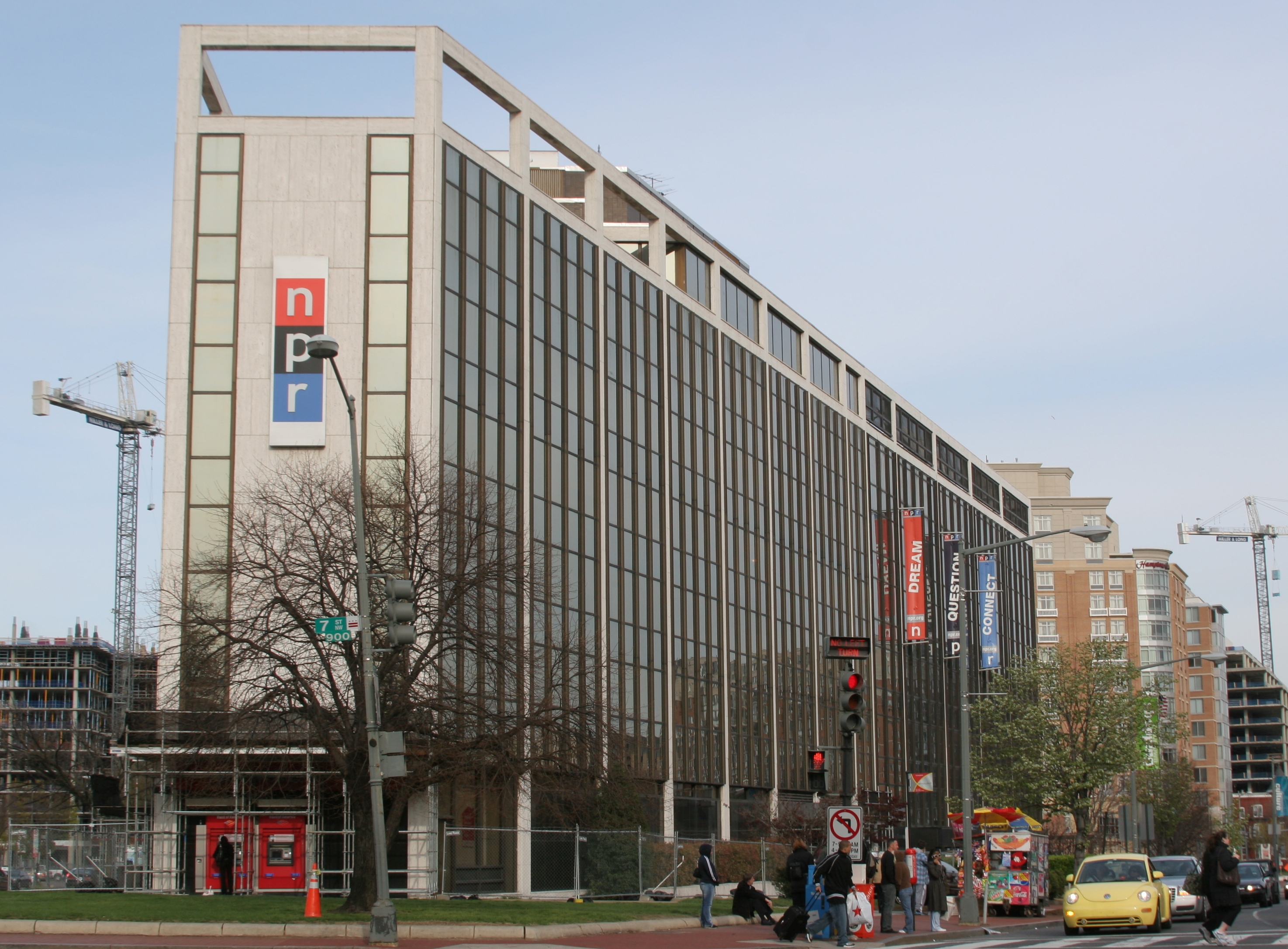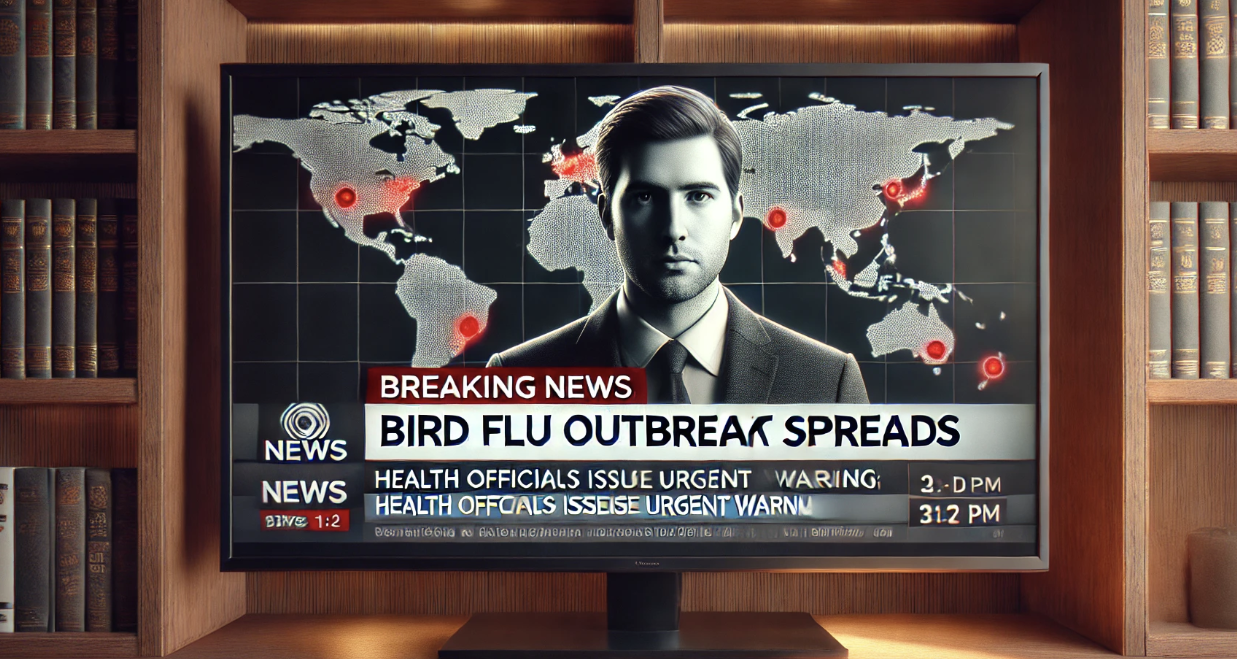National Public Radio originated as a publicly funded voice for all Americans, but media critics allege the shift to more private, corporate funding has led the station to become a voice exclusively for elite leftists.

Please Follow us on Gab, Minds, Telegram, Rumble, Gab TV, GETTR, Truth Social
By Michael Nevradakis, Ph.D.
In an August 2022 discussion on the New York Radio Message Board (NYRMB), an online gathering board for radio professionals and fans, a spirited debate took place over National Public Radio’s (NPR) political biases, real or perceived.
During the debate, one commenter wrote: “NPR broadcasts far-left agenda-driven radio to suit those who fund them, everyone knows this. NPR is tailor-made left-wing propaganda, follow the $$$.”
Another commenter posted this counterargument: “For every segment that covers one side of an issue, there’s another that covers the other side. If you or anyone else disagrees, the company has an independent ombudsman to whom you can direct your complaint. Name a similar person in conservative talk radio.”
The debate proceeded along these lines, with each side attempting to convince the other that NPR was either wholly biased or wholly unbiased on a myriad of issues, ranging from COVID-19 restrictions to abortion.
The NYRMB attracts primarily a niche audience of radio professionals and fans. However, the comments reflected wider debates over NPR’s politics and biases — namely, whether NPR’s programming and perspectives are a breath of fresh air (pun intended, this is the name of a popular NPR program) in a commercialized media landscape or a soothing, soft-spoken variation of mainstream news media.
Numerous polls, and sentiments among groups ranging from conservative Republicans to the far left, argue that NPR’s programming is permeated by a liberal bias, as part of a feedback loop encompassing its corporate underwriters, connections to the Beltway establishment and the liberal leanings of much of its staff and audience.
Such criticisms have grown in tone and number ever since NPR, in July 2022, launched its “Disinformation Reporting Team,” based on what NPR chooses to classify as “disinformation.”
‘NO AD’ subscription for CDM! Sign up here and support real investigative journalism and help save the republic!
Others point to NPR’s embrace of so-called “woke” narratives catering to a small liberal elite or to a longstanding bias toward “authoritative” voices.
And, despite the “public” in NPR’s name, experts who spoke to The Defender described a culture of bias and censorship at NPR, and the shutting out of non-approved narratives.
A ‘propaganda tool of the COVID regime?’
NPR’s coverage of COVID-19-related topics provides insights into what some experts and listeners believe is a prevalent bias in its reporting.
For example, despite claims to the contrary, NPR frequently took clear positions on issues such as mask mandates.
NPR’s ethics handbook states: “Fair, accurate, impartial reporting is the foundation of NPR news coverage.” It also states: “We avoid loaded words preferred by a particular side in a debate. We write and speak in ways that will illuminate issues, not inflame them.”
Despite these statements, on Sept. 12, 2021, NPR tweeted:
The tweet accompanied a story with the far-from-impartial headline, “Yes, Gov. DeSantis, Studies Do Show Masks Curb COVID-19 In Schools.”
The article, which referred to Florida Gov. Ron DeSantis’ opposition to school mask mandates, claimed that the “still raging” debate over such mandates ignores the “scientific consensus” on the efficacy of masks.
In January 2022, NPR stood by a report claiming that U.S. Supreme Court Justice Neil Gorsuch refused a request by Chief Justice John Roberts, allegedly made on behalf of Justice Sonia Sotomayor, that he wear a mask on the bench. NPR defended its report, even though the three justices disputed the story.
In another COVID-19-related instance, in June 2021, NPR did a “complete about-face” on the “lab leak theory” regarding the origins of COVID-19, airing an interview with a Vanity Fair journalist who had recently written about the issue.
The Vanity Fair article contradicted the prevailing perspective at NPR, exemplified by an April 2020 report with “half-a-dozen scientists familiar with lab accidents and how research on coronaviruses is conducted,” concluding that “there is virtually no chance that the new coronavirus was released as result of a laboratory accident in China or anywhere else.”
For Mark Crispin Miller, Ph.D., an author and professor of media studies at New York University (NYU) whose research and teaching focus on propaganda, stories like the interview with the Vanity Fair journalist are the norm for NPR, not the exception.
In an interview with The Defender, Miller said:
“Throughout the COVID crisis, as with every other major propaganda drive in living memory, NPR has been a prolific fount of ‘liberal’ propaganda — to the point that some people have started calling it ‘National Propaganda Radio.’
“That’s no surprise, what with the network’s substantial corporate backing. It’s no more public radio than PBS is really public television [emphasis original].”
Michael Rectenwald, Ph.D., author of “Google Archipelago: The Digital Gulag and the Simulation of Freedom” and a former NYU professor, described NPR as “a propaganda tool of the COVID regime.”
Rectenwald told The Defender:
“NPR is as biased as any for-profit network and its censorship of ‘unapproved’ viewpoints, including both ultra-leftist and conservative-libertarian perspectives, is evident in its news, commentary and particular shows like ‘All Things Considered.’
“All things are never considered on NPR, if by ‘all things’ we mean perspectives other than those embraced by the elite establishment. The establishment today is a leftist authoritarianism, and thus NPR has become a leftist authoritarian outlet.”
According to Rectenwald, this extends to NPR’s reporting on COVID-19 vaccines:
“This leftist authoritarianism has been evident in its derision of ‘vaccine hesitancy,’ which it deems to be the mere product of ‘misinformation’ and ‘disinformation,’ or ‘far rightwing propaganda.’
“NPR has been a propaganda tool of the COVID regime, echoing and supporting the overblown risks of the virus and utterly neglecting the mounting evidence regarding the dangers of the mRNA vaccines.”
Miller told The Defender that such an editorial stance is part of a broader trend at NPR, where certain perspectives are often censored or otherwise considered taboo.
He recounted a particularly negative experience with NPR’s Philadelphia affiliate, WHYY, regarding the attempted promotion of his 2005 book, “Fooled Again: The Real Case for Electoral Reform” — a book alleging that instances of election fraud in the 2004 U.S. presidential election swung the result to former President George W. Bush.
Miller told The Defender:
“When ‘Fooled Again’ came out in 2005, it was blacked out by the corporate media — and that includes NPR. And then at the same time and weirdly, it was attacked by the left press, which really took me by surprise because that’s the press that I was part of, or thought I was.
“Bear in mind that I had often been on NPR as an interviewee, and I was on ‘All Things Considered’ … I was a regular guest, actually, just as I had often written op-eds for The [New York] Times. But this book landed me on some kind of blacklist because election theft is one of those forbidden topics, like the Kennedy assassination or 9/11.”
Nevertheless, Miller said, WHYY, via a friend and supporter in Philadelphia, made an overture to purchase underwriting on the station to promote the book.
“I have a friend who runs a small nonprofit in Philadelphia, and he offered to approach WHYY, the NPR affiliate there, and pay for some ads for the book. We would advertise the book and they told him that was fine. They said ‘write up these ads you have in mind, and then we’ll talk.’
“So he and I wrote some 30-second spots about the book and he sent them in and he didn’t hear anything back.”
Miller described what followed as “breathtaking”:
“We finally called them and the guy we talked to said, ‘Oh, we can’t run those … we don’t run political advertising.’ So my friend said, ‘Well, you know, Mark Crispin Miller is not running for president. This is a book about the theft of an election.’ And the guy said, ‘well, we wouldn’t advertise just any book … we wouldn’t advertise ‘Mein Kampf.’
“That’s what he said. So that was, that was breathtaking.”
Rectenwald referred to Miller in remarks about NPR propaganda:
“As Mark Crispin Miller has suggested, you can recognize propaganda by the fact that every media outlet is trumpeting the same agenda.
“NPR has shown itself to be no exception to the near-universal generation of propaganda. In fact, because of its claims and tone of ‘neutrality,’ it is among the worst offenders.”
Investigations into propaganda and bias at NPR are not new. A 2011 “sting” operation by Project Veritas involved two journalists who went undercover and posed as representatives of the fictional, Muslim Brotherhood-affiliated “Muslim Education Action Center,” offering a $5 million donation to NPR.
During this sting, high-level NPR executives, including Ron Schiller, then-president of the NPR Foundation and senior vice president for development of NPR, and Betsy Liley, then-senior director of institutional giving for NPR, were recorded telling the group that its donation could be anonymized to avoid a federal audit, and to avoid expressing distaste for Christians, Jews, “white middle America” and “seriously racist, racist” Republicans.
The members of the fictitious group were recorded explaining how, for instance, in an attempt to keep George Soros’ then-recent $1.8 million donation to NPR anonymous, they didn’t announce it on air.
Despite claims the video of the sting operation was “heavily edited,” it led to the resignation of then-NPR CEO Vivian Schiller (no relation to Ron Schiller, who also resigned) in March 2011. Liley was placed on administrative leave.
In a 2017 opinion piece for the New York Post, Ken Stern, a former NPR CEO, also accused NPR of political bias, writing:
“Most reporters and editors are liberal — a now-dated Pew Research Center poll found that liberals outnumber conservatives in the media by some 5 to 1, and that comports with my own anecdotal experience at National Public Radio.”
More recent Pew Research Center survey results indicate much the same trend. A 2019 Pew Research poll found that, with regard to the audience’s partisan affiliation, NPR is the fourth most partisan media outlet, behind MSNBC, Fox News and The New York Times.
NPR’s ‘fair and impartial’ claims of ‘disinformation’ are one-sided
Accusations of bias didn’t stop NPR from developing its very own “Disinformation Reporting Team” this past summer.
In a memo sent to NPR newsroom staff, Terence Samuel, NPR vice president and executive editor, and Nancy Barnes, senior vice president of news and editorial director, announced the team’s launch, with the intention of covering the “disinformation crisis.”
The memo, among other things, made reference to “anti-vaccine activists”:
“The viral spread of mis- and disinformation has emerged as one of the great civic challenges of our time.
“From the lies about the 2020 election to the growing influence of anti-vaccine activists, to the enduring influence of climate-change denialism, lies and conspiracy theories have seeped into nearly all aspects of modern-day life, both in the US and around the globe.”
NPR’s 2021 annual report referenced NPR’s then-efforts against “disinformation,” placing “dispelling disinformation” as part of its mission and crediting its funding sources and donors for making such reporting possible:
“In all that we do, NPR strives to create a more informed public. With the growing reach and influence of misleading information and conspiracy theories, our mission is more vital than ever.
“In 2021, NPR launched a dedicated reporting team to explore how disinformation is shaping our country’s politics, policies and culture. We’ve examined crucial topics like cybersecurity and extremism, held medical professionals to account and pursued investigations into false claims that go viral.
“Because of your generosity, we’re using accurate, credible reporting to help audiences understand the origins of false information — and ways to prevent its spread.”
Soon after NPR launched its “disinformation” team, the conservative National Review carried remarks by Republicans and conservatives stating that “the NPR disinformation team should start by looking at NPR’s own reporting” and comparing “NPR launching a disinformation team to the mafia launching a crime-fighting initiative.”
Examples of NPR’s disinformation-related reporting, including its “Untangling Disinformation” series, reveal commonalities and ongoing trends in the focus of the stories featured and the perspectives contained therein.
A characteristic example of this is a Nov. 4, 2021, piece featuring Nebraska doctor Lee Merritt, who, according to NPR, “has appeared on talk shows and in lecture halls to spread false information about COVID-19.”
The piece, which cited information from the “U.S. intelligence community” in an attempt to rebuke some of Merritt’s claims about COVID-19, expressed concern that Merritt was nevertheless “able to renew her medical license” with “just a few clicks,” citing “experts” who said this was an example of how “state medical boards are failing to protect the public from a small minority of doctors spreading COVID falsehoods.”
One expert cited in the piece was Imran Ahmed, CEO of the Center for Countering Digital Hate (CCDH), who told NPR, “Speeches aren’t enough, letters aren’t enough, we need action now” to remove such doctors.
Ahmed previously stated he “would go beyond calling anti-vaxxers conspiracy theorists to say they are an extremist group that poses a national security risk.” The CCDH, which partners with social media “fact-check” firm NewsGuard, said COVID-19 “will only be overcome by the most ambitious vaccination programme in human history.”
In a March 2021 report, NPR expressed similar fears that “fearmongering vaccine stories go viral online.” According to the report, “The odds of dying after getting a COVID-19 vaccine are virtually nonexistent” and social media content questioning the vaccines has been among “the most highly engaged with content online this year.”
Similarly, in July 2022, an NPR report focused on individuals who “became enmeshed in conspiracy theories about COVID.” According to that report, “Doubting mainstream medicine,” these people instead found “dangerous advice and pills online.”
More recently, a Nov. 2 NPR story focused on Minnesota’s Republican gubernatorial candidate, Dr. Scott Jensen, a physician, claiming that he and other candidates like him are “pushing conspiracies about vaccines.” While Jensen was not quoted in this story, the story included remarks from two pro-vaccine nonprofits.
NPR also warned against the growing popularity of “documentary-style films that turn conspiracy theories into a call to action,” instructing the audience on “how to avoid sharing false or misleading news about the election” and “what to think about before sharing news” — essentially instructing the public on what to think, and how.
Recent NPR reports also praised social media platforms for “bringing back familiar strategies from 2020 to fight the spread of disinformation in the 2022 midterm elections” — albeit warning “it may not be enough” — and Twitter’s deployment of a new strategy, “pre-bunking,” to warn the public of purported misinformation before it spreads.
In turn, “experts” cited in such articles include University at Albany assistant professor Sam Jackson, Ph.D., who studies extremist groups and who told NPR in March 2021:
“One of the interesting things about the current misinformation landscape is that it’s not necessarily uninformed people … It’s misinformed people. It’s people who say, ‘I do my own research; I don’t trust the elites.’ And their research is nonsense, it is sophisticated nonsense.”
Despite NPR’s claims of combating “disinformation,” TheFactual.com, which hosts an algorithm that analyzes more than 10,000 news stories daily for how informative and factual they are, ranks NPR only “moderately factual,” particularly calling into question author expertise, many articles which lack authors and an occasional lack of cited evidence.
Concerns also have been raised that NPR may weaponize its “disinformation” team “for political purposes,” while others have cited examples such as NPR’s dismissal of the Hunter Biden laptop story, stating, “We don’t want to waste our time on stories that are not really stories [but] are just pure distractions,” and claiming it was “discredited” by U.S. intelligence. The authenticity of the laptop was later confirmed.
NPR: ‘public’ radio that has abandoned its public mission?
While NPR’s ethics handbook claims that “Fair, accurate, impartial reporting is the foundation of NPR news coverage,” survey data and expert analysis indicate otherwise.
A February 2022 AllSides Blind Bias survey, for instance, found that 71% of respondents classified NPR as “left of center,” while 9% rated it “right of center.”
Jack Mitchell, Ph.D., the first producer of NPR’s “All Things Considered” and professor emeritus at the University of Wisconsin-Madison, told Current Affairs in a Sept. 2022 interview that NPR has “objective and balanced coverage” — but added that it is “not that different from the tone of The New York Times.”
NPR’s initial mission, however, was not to replicate the mainstream press. As stated by Joe Concha in a July 2022 piece for The Hill, when NPR launched in 1971, “part of its original mission was to ‘speak with many voices, many dialects,’ which suggested that it would embrace the most important diversity of all: diversity of thought and speech.”
Indeed, Mitchell, speaking to Current Affairs, said that in its early days, NPR focused on “the real people, not the experts,” adding that it was intended to “be representative of the entire country. The assumption was that all kinds of people would listen to this because all kinds of people were represented.”
Kody Cava, writing for Current Affairs, described NPR as having begun “as a scrappy institution featuring the voices of average Americans,” but that has morphed into “a sterile, inoffensive corporate product that is produced, funded, and consumed by a narrow demographic of highly educated liberals.”
Cava says this change occurred in the late 1970s, when NPR, mirroring the practice of commercial media, began “taking the advice of private consultants [and] decided to become more ‘respectable’ and professional, giving voice to experts instead of average people and hiring more people with journalism backgrounds to staff its programs.”
Today, argues Cava, NPR can be considered media designed for the liberal class, by the liberal class. Pew Research findings from 2019 indicate that 87% of NPR listeners support or lean toward the Democratic Party, and 68% are college graduates, making it the second-most skewed media outlet by education level, after The New York Times.
In 1993, the Chicago Reader described NPR’s audience as “cultish” and “fixated” — “a herd of independent minds” that shares a “peculiar belief that they’re better informed because they obtain all their information from a single source.”
Mitchell told Current Affairs that NPR is “liberal, no question,” but that this goes unnoticed by its audience because they, too, are liberal. NPR and PBS have been described as representing “coastal elites that disdain the public” and having “ceased long ago to reflect the views of the American public.”
For some, such elitism is represented in the educational backgrounds of NPR reporters. Cava, citing NPR data, found a significant number of “prominent” NPR reporters attended elite universities, including Brown, Cambridge, Columbia, Cornell, Georgetown, Harvard, Johns Hopkins, Oxford, UPenn, Princeton, Stanford and Yale.
“NPR’s audience and staff is composed overwhelmingly of college-educated liberals, the same demographic that dominates the Democratic Party,” Cava said.
Such staffing biases also arguably resulted in a lack of diversity within NPR’s ranks, which is also reflected in its journalistic product. NPR itself noted that in 2018, it had “much work ahead,” as voices heard on its weekday news programs were 83% white and only 33% female.
The National Review argues that this had led NPR to “reflect only the views of either the administrative state or the identitarian Left,” while Mitchell conceded to Current Affairs that “Real debate doesn’t happen on public radio, and I wish it would.”
Even a decade ago, in 2012, Vanity Fair described NPR as existing within a “Beltway bubble” that has “gone decidedly mainstream” and as “a curiously insular institution, a place where people with common backgrounds congregate, stay around forever, live near and sometimes marry one another.”
Such statements highlight the basic assumptions that appear to underpin NPR’s editorial stance, argues Cava, stating that “NPR’s ideological bias is toward what we might call the American bipartisan consensus,” which promotes globalization and “free trade,” “war, militarism, and U.S. hegemony” and “liberalism,” among other things.
For Cava, these basic assumptions manifest themselves in NPR’s finished product. “The typical commentary we hear on the radio consists of a dismal interview with a member of the U.S. State Department followed up by a counterpoint offered by an employee of a think tank,” Cava said.
Ralph Nader, writing in 2018, highlighted NPR’s dependency on establishment experts, representatives of think tanks and figures from the corporate world, stating that they “tend to have economic and ideological axes to grind that are not disclosed to the general viewers, listeners and readers, when they are merely described as ‘experts.’”
As far back as 1993, a Fairness and Accuracy in Reporting analysis found that NPR’s guestlist contradicted its then-“alternative” reputation.
Some at NPR have admitted this. In September, NPR reporter Nina Totenberg, in recounting her longtime friendship with Justice Ruth Bader Ginsburg, remarked that “Objectivity should never be confused with fairness. Nobody is purely objective. It is not possible. … What all of us are capable of is fairness.”
In turn, Michael P. McCauley, a scholar and former radio journalist who authored “NPR: The Trials and Triumphs of National Public Radio,” wrote that NPR has followed the broader trend in which radio has become a “narrowcast medium” that super-serves “discrete segments of the overall audience.”
Cava argues this has resulted in criticism directed at NPR from segments of both the left and the right, with left-wing critics claiming NPR supports “imperialism and corporate capitalism,” while right-wing criticism may consider NPR to be “an elitist liberal propaganda cult” that is “openly hostile to any conservative voices.”
According to the National Review, NPR regularly presents “‘woke’ opinion as fact” and “broadcast[s] views that are anathema to at least half the country.” This also includes the use of “left identitarian language,” in addition to a new NPR policy allowing its journalists to participate in protests and demonstrations.
Criticism has also come from members of the public following NPR’s 2016 decision to end online comments on its website and to allow commenting only via its social media presence. One former NPR commenter told The Guardian that NPR’s decision “feels like censorship.”
Brought to you by Big Oil, Big Pharma and Big Tech?
NPR’s shift to “decidedly mainstream” programming appears to coincide not just with the hiring of outside consultants, but also with a 20% cut in funding to the Corporation for Public Broadcasting (CPB) in 1983, during the Reagan administration, followed by an additional 25% cut in 1995, according to Current Affairs.
Fortunately for NPR, corporate money was there for the taking. In 2003, Joan B. Kroc, heiress to the McDonald’s fortune, presented NPR with a bequest of $225 million. According to Cava, this allowed NPR to “expand its news staff across the country and around the world.”
Flush with a new infusion of cash, it was around this time that NPR also began to snatch up non-commercial radio stations across the U.S., including, quite often, college radio stations that previously were often run by students themselves.
Despite frequent calls from the right to “defund” it, NPR today receives very little of its funding directly from the federal government. However, this fails to account for the “gobs of taxpayer money” local NPR affiliate stations throughout the country receive.
NPR’s financial reports state that less than 1% of its funding “comes in the form of grants from CPB and federal agencies and departments.” Indirectly though, via the revenues of affiliate public radio stations, 8% of NPR’s total income comes from “federal appropriation via CPB” and a further 5% from “federal, state and local governments.”
This means that most of NPR’s revenue, exceeding $288 million, comes from other sources. The top three other revenue sources, per NPR’s financial reports, are corporate sponsorships (37%), core and other programming fees paid by NPR affiliates (32%), and contributions of cash and financial assets (12%).
This $288 million figure far exceeds the total amount budgeted by the CPB — $125.71 million — for public radio stations as part of its fiscal year 2023-2025 request to the federal government. Despite this, NPR states on its website that “federal funding is essential to public radio’s service to the American public.”
Essential as federal funding may be, corporate funds appear to be even more essential for NPR. According to NPR:
“Covering the news requires significant resources. The funds NPR receives from corporate donors are an important part of the revenues that fuel NPR’s in-depth reporting and programming, but only a part.”
“Only a part” is relative, considering that corporate sponsorships represent the largest single source of revenue for NPR. Cava called NPR “a product stuffed with advertisements.” while Nader said, “What started as a ‘just a little bit of commercial sponsorship,’ when Congress got tight some years ago, has now gone wild.”
Although “significant resources” may be required for its news coverage, according to NPR’s most recent financial reports, 25 executives and staffers — including an international correspondent whose name is redacted, due to “reporting in a potentially dangerous foreign country” — receive salaries of $250,000 or more.
NPR claims “corporate sponsors cannot influence” its coverage, and that its “journalists are trained in the ethics and practices of journalism which prevent outside groups from influencing their objectivity, story selection, and reporting,” adding that “when news warrants, we will report on the activities of companies that support NPR.”
NPR’s corporate sponsors encompass a who’s who of Big (commercial) Media, Big Oil, Big Pharma and Big Tech, including, for FY2021:
Amazon, Apple, Bank of America, CBS, Chevron, Children’s Health, Children’s National Hospital, CNN, Coca-Cola, Comcast, ConAgra Functional Foods, ExxonMobil, Facebook, GoFundMe, Goldman Sachs, Google, IBM, JPMorgan Chase, LinkedIn, McDonald’s, Microsoft, MSNBC, Nationwide Children’s Hospital, NBC Universal, Netflix, Novo Nordisk, PepsiCo, Procter & Gamble, Stanford Children’s Health, Starbucks, the U.S. Department of Health and Human Resources, the Union of Concerned Scientists, University of Kansas Health System, Vanguard, Verizon, Vox, Walt Disney, YouTube and Walgreens.
Other corporate sponsors in FY2020 included the Bill & Melinda Gates Foundation, the Council on Foreign Relations, the Federal Communications Commission (which licenses NPR affiliate stations), Johnson & Johnson and New York University — which sought to oust both Michael Rectenwald and Mark Crispin Miller for their views.
As recently as 2017, pharmaceutical company Eli Lilly was also an NPR sponsor.
Cava writes that NPR’s corporate sponsors take advantage of the “halo effect” — or “the positive association and shared values that NPR listeners attribute to the companies that sponsor us.”
NPR management appears to be fully aware of this “halo effect.” And, Cava writes, “If the effect is real, and NPR insists it is, then by their own admission they are burnishing the reputation of the fossil fuel industry by accepting funding from that industry.”
Michael Nevradakis, Ph.D., based in Athens, Greece, is a senior reporter for The Defender and part of the rotation of hosts for CHD.TV's "Good Morning CHD."
“© [Article Date] Children’s Health Defense, Inc. This work is reproduced and distributed with the permission of Children’s Health Defense, Inc. Want to learn more from Children’s Health Defense? Sign up for free news and updates from Robert F. Kennedy, Jr. and the Children’s Health Defense. Your donation will help to support us in our efforts.

























Just another three letter agency of the government now !